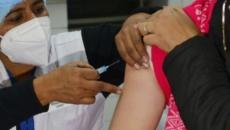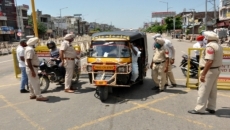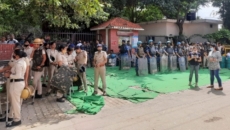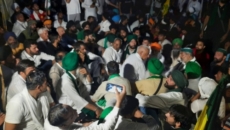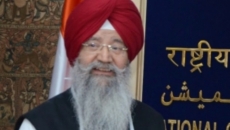An NGO with an aim to educate the rural areas of India and Nepal.
Lack of education is one of the biggest problems faced by the youth of India. While there are a lot of NGOs in place to combat this issue, one that comes to mind is Ekal Vidyalaya. What everyone believes at Ekal Vidyalaya is that “change is possible and education can be the medium to bring the change in the life of the last man in the last row in the remotest parts of India.”
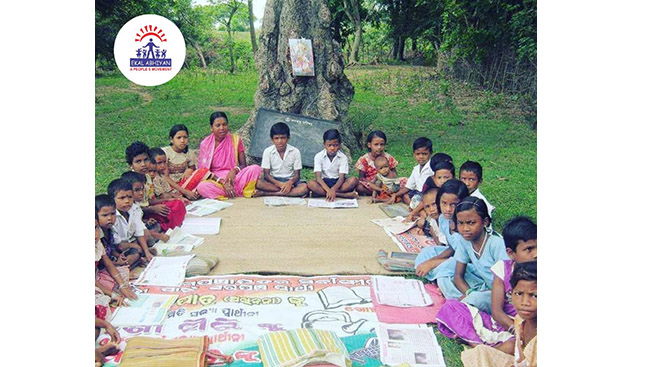
How it all began...
It was an interesting story of how the organization started. As they describe it, it was almost like different streams across the country came together to merge into a big river that will serve all the villages it passes through.
The original team that saw the idea turn into action included Late Dr. Rakesh Kumar Popli (an Indian nuclear physicist), Dr. Rajneesh Arora, Dr. Mahesh Sharma from IIT and Ashok Bhagat from BHU. When all the believers visited Bishanpur in Jharkhand, in the year 1983, they conducted a situational analysis of this tribal area. They immediately picked up that some of the areas that need immediate attention are education, health along social, gender and economic disparities.
Dr. Rakesh Popli and Dr. Rajneesh Arora took the initial steps and started teaching informally to the local communities. In the process, they developed a well-planned strategy to teach particularly the children.
While their efforts were going strong, in 1985, Shri Shyam Ji Gupta, a social activist with extensive knowledge and experience with the Vanvasi communities in the state of Orissa, launched a plan to visit the Fulbani district. He called this initiative, “Fulbani district upgradation project” and also started an innovative concept called the night school concept. Soon the idea started working and within a short span of time, 400 such night schools were started in villages where children came along with adult villagers.
The organization looks back to Shri Shyam Ji Gupta as he became the master architect of the Ekal Vidyalaya Model. His organizational capacity and unparalleled commitment and conviction were some of the main reasons why Ekal Vidyalaya has become a global movement.

The Mission
The volunteers at Ekal Vidyalaya have a very straightforward and holistic mission - empower the tribal communities and rural population with basic education, digital literacy, skill development, health awareness, learning modern and productive agricultural practices and rural entrepreneurship. According to their website, the Ekal movement aims to help eradicate illiteracy from rural and tribal India and Nepal following the philosophy of rural development based on the criteria of equality and inclusiveness across all the sections of the society.
Primary Education Is A Right!
Ekal Vidyalaya can boast that they have changed the lives of 10 million students in 102,000 rural villages based in India and Nepal. They organize classes that have about 30 students between the age group of six and 14. The classes are mostly held in an accessible outdoor area that is central to the village. Most often the children are also needed to work during the day to help the family with extra income, which is why these classes only begin in the afternoon. Who teaches? The website states that “selected by a village committee, our teachers are local youth with at least a 10th-grade education. They are specially trained in pedagogy to meet the needs of rural children. Teachers participate in regular training to maintain educational quality.” What do they learn? The students get exposed to a standard core of the language, arithmetic, and science. They also learn about physical education, health science, and creative arts.
Education on wheels
Started in 2015, Ekal On Wheels is a mobile computer lab that provides digital literacy training to youth in rural villages. There are about 36 wheels that run across the country. Interestingly these vehicles are all powered by solar panels and can seat 18 students at a time. These buses give rural communities an introduction to computers, keyboard and digital illustration skills, MS Office and Open Office tools, internet browsing, email, navigating websites, and digital banking.
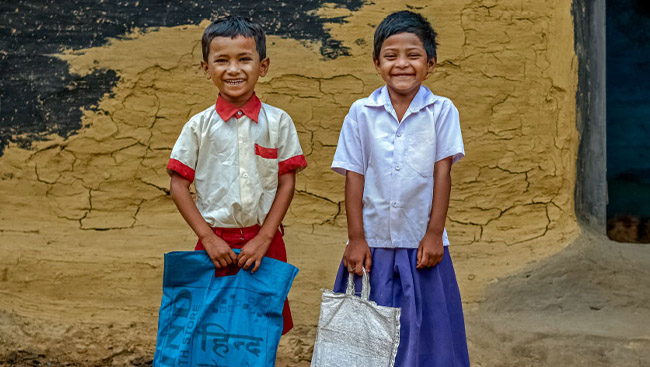
Learn Online
One of their more advanced platforms is E-Shiksha which is an innovative initiative to incorporate tablets and digital learning in Ekal’s 100,000+ single-teacher primary schools. Tablets bring high-quality, personalized learning to every student, no matter where they live. Other than the already existing curriculum, E-Shiksha also provides interactive audio-visual material and digital learning. From counting games to animated stories, tablets make learning fun, bringing the best of education technology to millions of rural students.
How can you contribute?
Contribute to an organization that is making an impact on the rural communities across India and Nepal. As part of Ekal Vidyalaya, there is also a special program - called the Vanyatra. As part of the program - one can visit these schools and experience the model and then contribute in terms of donation or services as a volunteer. The concept is evolved to see the change at grass-roots Ekal is bringing and also to have an experience of rural/Tribal India.
Education means dignity and life. Help build a future for children in rural India.
For more information, visit:
www.ekal.org

